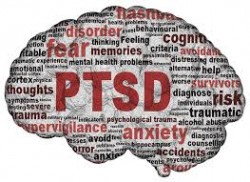Who Needs Trauma Focused Cognitive Behavioral Therapy?
Not many people have heard of Trauma Focused Cognitive Behavioral Therapy. Scientists developed Trauma Focused Cognitive Behavioral Therapy in the 1980s as a way to help people overcome Post Traumatic Stress Disorders. Its first applications were to provide children who were sexually abused a comprehensive family and individual therapy solution. Now doctors primarily use this type of therapy to help children and their parents to overcome traumatic events in their lives.
How does Trauma Focused Cognitive Behavioral Therapy work?

Trauma Focused Cognitive Behavioral Therapy helps patients process traumatic events.
Traumatic events cause an enormous amount of stress and anxiety in both children and adults. These events can shape the way a child develops and grows into a emotionally fulfilled adult. Trauma Focused Cognitive Behavioral Therapy works by using behavioral and familial strategies to help children:
- process traumatic events,
- process their emotions in a beneficial way, and
- control the stress associated with these events.
This type of therapy uses stress management and counseling techniques to help children deal with emotions brought about by these events in ways that are not destructive, violent, or negative in any way.
What are the Treatment Components to this Therapy
As with any modern therapy there are some components that make the treatment effective. For Trauma Focused Cognitive Behavioral Therapy, these components are:
- educating the parents,
- teaching the parents parenting skills,
- teaching both the child and the parent relaxation skills,
- showing the child and parent how to use affective expression,
- helping both parent and child with emotional regulation,
- gradually exposing the child to the realities of the trauma,
- family sessions with the child and the parent or guardian, and
- teaching a child to deal with future traumatic events or the consequences of this one.
These components work together in a way that helps the child and parent deal with the traumatic event in a healthy constructive way. It uses child specific sessions, parent specific sessions, and combined parent and child sessions to accomplish this.
Who Benefits from Trauma Focused Cognitive Behavior Therapy?
Anyone who has experienced trauma can benefit from this type of therapy. The therapy focuses main on:
- children or adolescents who have experienced a trauma such as:
o sexual abuse,
o drug use,
o physical abuse,
o emotional abuse,
o a traumatic accident,
o loss of a parent or family member, and
o any other tragedy that happened to the child or adolescent.
- parents who need help dealing with their child’s trauma,
- guardians who are caring for a child in a traumatic circumstance,
- relatives or other family members who need help caring or dealing with a child who has experienced trauma.
Although others benefit from trauma focused counseling, these are the main groups normally benefited by it. Each individual is different and therefore no one type of counseling fits every situation.
Why use Trauma Focused CBT?
According to the Substance Abuse and Mental Health Services Administration, as with any type of therapy, Trauma Focused Behavioral Therapy works for a variety of groups and situations regardless of ethnic, social, or economic backgrounds. The program is adaptable to every culture and religion. Although many programs leave special populations out, this particular program is available for the hearing impaired, visually impaired, and other disabled children.
It teaches children and parents skills:
- for managing distressing thoughts,
- for managing distressing feelings,
- for managing distressing behaviors,
- for teaching advanced safety procedures,
- parenting skills for the parents, and
- family communication.
These are valuable skills and management techniques for the whole family to engage in. With children, it is difficult to find a method that works well. TFCBT is extremely flexible so it works where other more strict therapies do not.
Components of Trauma Focused Therapy
According to the National Child Traumatic Stress Network, TFCBT is a short term program that can last as little as 12 weeks. The length of each program is designed to meet the child and family’s needs. It is one of the only child / family engaging programs. The key components of this program are:
- trauma narration – allowing the children to describe the trauma,
- cognitive processing – illustrates the relationships between behaviors, thoughts, and actions. This allows the child and parent to see and model both positive and negative behaviors,
- relaxation techniques – gives children and parents the basics of relaxation and the tools to build on it.
- parenting skills – helps the parents create a positive emotional and physical climate in the home particularly when it comes to behaviors due to the trauma,
- mastery over the trauma – addresses triggers and other negative behaviors due to the trauma, allowing the child to desensitize to the trauma and the triggers,
- child and parent co-sessions – this allows the parent and the child to speak to each other about the trauma and the traumatic event,
- education – educating both the child and the parent about the impact the event and what they can expect.
These components all combine to help both the child and the parent or caregiver to cope with trauma.
Not everyone is equipped to deal with a person who is exposed to a traumatic event, especially when it comes to children. Most people do not have the knowledge or the skills to help when it comes to a traumatic event. Trauma Focused Cognitive Behavioral Therapy provides you the tools to deal with child trauma. For more information about this and other therapies, call use at 800-895-1695.





